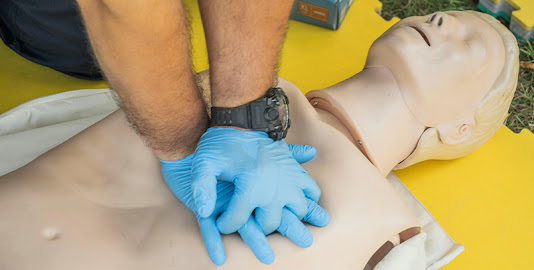As the largest city in Manitoba, Winnipeg sees its fair share of medical emergencies that require immediate first aid response. Having citizens properly trained in first aid and HCP Courses Winnipeg can help save lives when urgent situations occur. Getting the right training from a reputable provider is crucial for residents of Winnipeg to gain these potentially lifesaving skills.
In Winnipeg, first aid and HCP courses Winnipeg are offered by organizations like the Canadian Red Cross and St. John Ambulance. These nationally recognized training bodies have extensive experience in teaching evidence-based first aid protocols to millions of people across Canada. By taking a course with them in Winnipeg, you can trust you’ll get top-quality instruction that meets provincial and national standards.
But why is it so vital for Winnipeg residents specifically to get this type of training? Here are a few key reasons:
Extreme Weather Emergencies
As a city prone to long, bitterly cold winters, Winnipeg sees its fair share weather-related emergencies. These can range from people suffering from hypothermia or frostbite to vehicle accidents caused by icy roads. Having citizens trained to provide initial care in these types of emergencies until EMS arrives could save lives and prevent further injury or illness.
Influx of Refugees & Newcomers
As Manitoba continues to welcome new waves of immigrants and refugees, it’s essential that existing residents have adequate first aid skills to support the health and safety needs of our changing population. Taking a course to refresh your knowledge ensures you’ll be prepared to assist someone newly arrived in Winnipeg if an emergency occurs.
Aging Population
With the large baby boomer population now entering their senior years, the number of citizens vulnerable to health issues like heart problems, falls, and other emergencies will continue rising over the coming decade. Getting trained helps equip younger citizens with the ability to support this vulnerable group if a crisis situation emerges.
Rise of Public Health Emergencies
Events like the COVID-19 pandemic have demonstrated how essential it is for citizens to have robust First Aid Training Winnipeg in order to protect themselves and support their community during public health threats. Learning the infection control procedures and personal safety requirements covered in these courses will keep residents prepared for the next large-scale threat that arises.
And while major cities like Winnipeg have emergency medical services that provide rapid response in crisis situations, bystanders trained in first aid and HCP protocols are often first on the scene when an incident occurs. So, getting certified gives residents the ability to act immediately and deliver care until EMS teams arrive to take over.
Key Skills Covered in Winnipeg HCP & First Aid Courses
So, what are some of the vital skills you’ll gain by taking a first aid or HCP Courses Winnipeg? Here are some of the important areas typically covered:
Recognizing the signs and symptoms of urgent medical issues like heart attacks, strokes, anaphylaxis, and hyperglycemia
Conducting key checks for key vital signs like patient responsiveness, pulse, and breathing
Applying CPR and using an automated external defibrillator (AED) to treat cardiac arrest victims
Controlling major bleeding from wounds using dressings and tourniquets
Treating issues ranging from choking, fractures or sprains, and shock
Implementing universal safety precautions to limit disease transmission risk
On the HCP course side specifically, advanced skills like administering emergency oxygen and assisting patients with using inhalers or epinephrine auto-injectors will also be covered. This provides a more enhanced scope of emergency care compared to standard first aid.
Where to Take an HCP or First Aid Training Winnipeg
Now that you grasp the importance of getting certified, where exactly can you take a course in the city? Here are your main options for trusted providers:
The Canadian Red Cross has branches located throughout Winnipeg where their certified first aid and HCP instructors deliver emergency care training that’s accredited nationally. Plus, they offer both classroom-based and online blended courses for added flexibility.
Independent trainers certified by the Lifesaving Society provide another avenue to pursue first aid or HCP Courses Winnipeg. They offer private group/workplace courses along with open enrollment sessions advertised on sites like Eventbrite.
Regardless of which training provider you ultimately select in Winnipeg, taking that first step get certified in first aid or HCP could one day make all the difference in saving a life when seconds matter most. It’s one of the best investments you can make to keep yourself, your family, and fellow community members safe.

.jpg)
.jpg)










